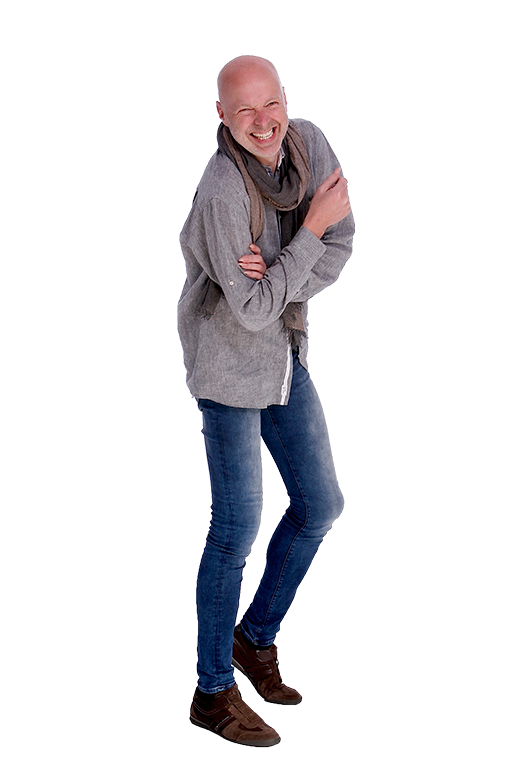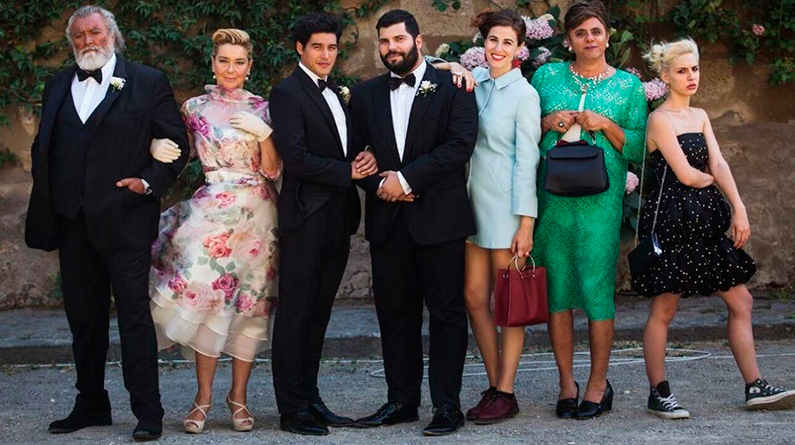
Diego Abatantuono, Monica Guerritore, Cristiano Caccamo, Salvatore Esposito, Diana Del Bufalo, Dino Abbrescia, Beatrice Amera
For some, another edition of the OUTshine Film Festival presents an opportunity to come together to champion diversity in communal harmony, especially in times one could accurately describe as challenging. For others, it gives them the chance to partake of a healthy dose of international and American independent cinema with a queer bent, a welcome change of pace from the Netflix-and-chill routine.
To me, however, the annual cinema showcase, especially now that it's celebrating its 20th anniversary, doubles as a rather unique trip down memory lane. You see, long before I took to social media to call out the event's organizers on some (okay, more than some) of their scheduling and logistical choices, I worked for the nonprofit organization previously known as the Miami Gay & Lesbian Film Festival, way back when its programming staff was just me and founder Robert Rosenberg in his Forte Towers apartment on West Avenue, and then for several years afterwards.
Much digital ink could be spilled about how current executive director Victor Gimenez, programming director Joe Bilancio and the rest of their team are handling a wide array of gatekeepimg matters. For example, this past Tuesday's pre-opening night outdoor screening of the campy sci-fi flick “Barbarella” turned into a pre-opening night outdoor screening of the campy sci-fi flick “Flash Gordon” when it occurred to someone that showing a younger Jane Fonda's bare breasts on the New World Center's 7,000-square-foot projection wall might not be the most sensible course of action. Or one could point out, as I have, how OUTshine's tweets touting upcoming festival screenings place the emphasis on the sponsor and/or attached party over, oh, I don't know, the actual movie being shown. Or one could call readers' attention to the fact that this year there are no screenings taking place at local arthouse cinemas, even though there are selections that would benefit from such a space. (I'm looking in your direction, breezy British cine-essay “Queerama.”)
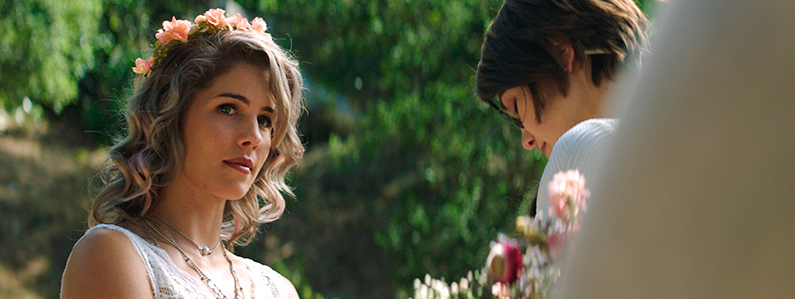
Emily Bett Rickards, Jana Winternitz
But before I dish about a handful of 2018 selections I've seen thus far, allow me to take a moment and tip my hat at the strides this organization has taken over the years. Bilancio has smartly broadened the scope of the content he's secured for the festival to include, for instance, works by out filmmakers that may not be predominantly LGBTQ-themed. If there's a unifying theme to the selections I've seen so far, it's stories about queer characters in which their queerness isn't always the main focal point. The history of MGLFF/OUTshine inevitably becomes the history of changing perceptions of what is and isn't considered “mainstream culture,” and if most of the film's gracing the screens of the Regal South Beach multiplex are decidedly a more wholesome bunch than during the early years (no Kenneth Anger or Derek Jarman retrospective in sight, for example), it's worth noting how the event has increasingly shifted farther and farther away from the margins, bringing to fruition what so many LGBTQ cinephiles have been striving to accomplish for so many years.
But achieving “normalcy” doesn't mean a lineup needs to be average, nor does it have to color inside the lines, and this is where OUTshine could do things a little differently. I say a little because there are good movies being shown this year. Bilancio, who programmed Washington, D.C.'s lesbian and gay film festival before bringing his expertise to this South Florida event, tends to serve up a balanced assortment of films that covers the wide diversity-rainbow spectrum. This year is no exception. The 2018 lineup features a more prominent presence of bisexual-themed narratives, as well as a selection of documentaries that, at least on paper, looks iron-clad. There's even a dollop of A-list glamour: “Disobedience,” the (unseen by me) English-language feature from the Chilean filmmaker Sebastián Lelio (the Oscar-winning “A Fantastic Woman”), pairs up Rachel McAdams and Rachel Weisz in a drama set in London's Orthodox Jewish community that has garnered positive reviews but has also elicited some gripes among Jewish audiences at prior festival showings who have taken issue with some of its content.
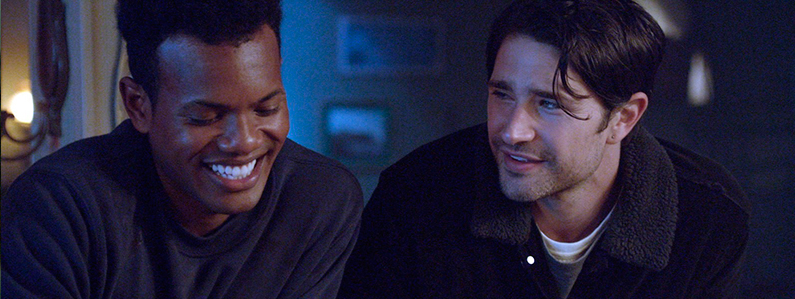
Martin L. Washington Jr., Matt Dallas
Despite the breadth of the programming, what continues to irk me about OUTshine is a tendency to program middling crowd-pleasers as opening night selections. Shouldn't a big gala strive to make a bold, resonant statement about the festival's identity and the current film landscape? It's evident to those who attend the festival on a yearly basis that more than a handful of turkeys have screened there, and that's okay, but shouldn't you kick things off by placing your best foot forward, especially when marking a landmark occasion like the 20th anniversary?
The egregiously misbegotten “My Big Gay Italian Wedding” (“Puoi baciare lo sposo”) answers these burning questions with a resounding no. Easily the worst opening night gala in the festival's history, as far as this critic is concerned, this tone-deaf mix of madcap farce and family melodrama manages to insult long-term same-sex relationships, unrequited longings, rural Italy, cross-dressing, reality TV and big-screen musicals before it's over. Admittedly, that's quite a feat for any movie aiming to denigrate the validity and self-worth of gay couples, but this train wreck is ostensibly trying to celebrate their love. Sorry to burst your bubble, OUTshine members more interested in the opening night party at Miami's Scottish Rite Temple than in the movie that precedes it. but even by the low bar this gala slot has set over the years, 2018's kickoff selection is a stinker that becomes even more ludicrous as it progresses.
Set in the present day but shackled by prehistoric, heteronormative politics when it comes to matters of the heart, the film kicks into gear when hunky Antonio (Cristiano Caccamo) reluctantly agrees to take his bearish fiancé Paolo (Salvatore Esposito) from the progressive confines of their Berlin apartment to Civita, the picturesque Italian town run by Antonio's conservative, set-in-his-ways dad Roberto (Diego Abatantuono). The reason? Twofold: a) to come out to his folks and b) to tell them he's getting married.
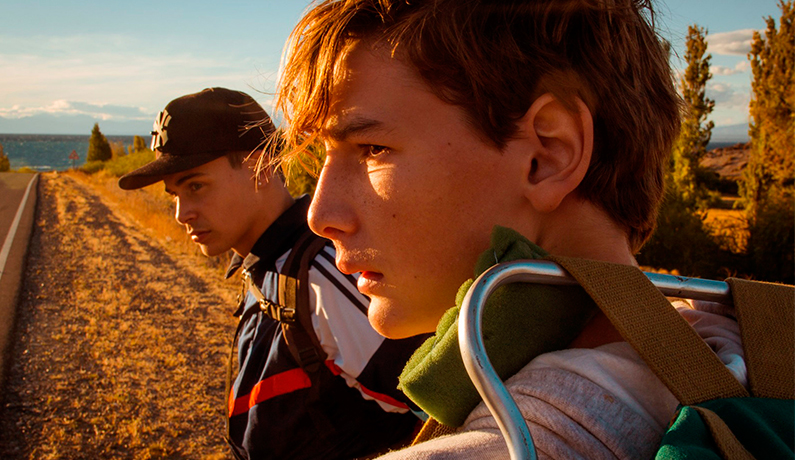
Lautaro Rodriguez, Angelo Mutti Spinetta
Accompanied by their ditzy trust-fund roommate Benedetta (Diana Del Buffalo) and their neurotic new lodger Donato (Dino Abbrescia), the lovebirds take a time out from their incessant bickering to make the trip, with plenty of touristy stops along the way. What starts out as a rather broad screwball comedy abruptly switches gears once Antonio lets the cat out of the bag in his hometown. It's an understatement to say Roberto doesn't take the news well, causing a rift with his more receptive wife Anna (Monica Guerritore). I'm sensing director Alessandro Genovesi, working from a schizoid screenplay he co-wrote with Giovanni Bognetti, wants viewer to be amused by how the domineering matriarch takes the bull by the horns, so to speak, but Anna's well-intentioned meddling leaves a sour taste, to say the least.
But Momzilla's event planning is the least of this fiasco's issues. “Italian Wedding” tries to pass off Cristiano's casual transphobia as an endearing trait and Roberto's shopworn gripes about his son's sexual orientation as a story wrinkle to be ironed out. But where the film cranks its cringe-inducing quality to 11 is in its depiction of Antonio's childhood friend Camilla (Beatrice Arnera), who will not let go of her toxic crush on the groom-to-be. Are her desperate attempts to stop the impending nuptials supposed to be funny? More like sociopathic and stalkerish from where I was sitting, but Genovesi keeps throwing tonally jarring bits at the viewer to see if something sticks.
“My Big Gay Italian Wedding” is a fatal mix of obnoxious and preachy. You know you're in trouble when your opening-night disposable fluff makes you feel like taking your medicine, while also indulging in the very stereotypes it ostensibly decries. I hesitate to use the term “Eurotrash,” but if the shoe fits...
Okay, so the 20th anniversary edition of OUTshine is getting off to a lousy start. That doesn't mean the opening weekend is also a wash. Case in point, the disarming, albeit a tad precious character study “Anything,” which brings together veteran character actor John Carroll Lynch (“Fargo,” “Zodiac”) and “Magic Mike” hottie Matt Bomer. The poky but engaging indie tells the story of Early (Lynch) a grieving widower from Mississippi who moves to Los Angeles to be closer to his sister Laurette (Maury Tierney) and ends up befriending Freda (Bomer), a sassy transgender streetwalker with a heart of gold. The film doesn't reinvent the wheel, but the cast handles its familiar elements with warmth and grace.
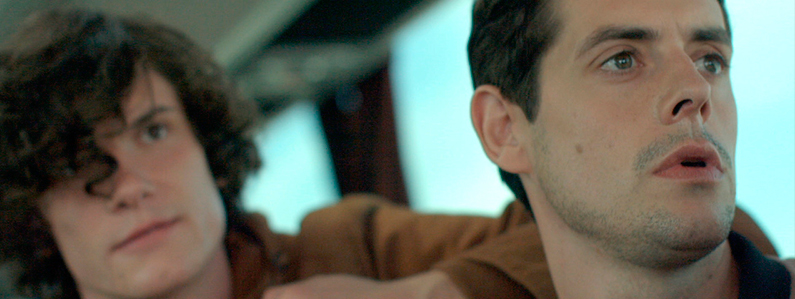
Mickael Pelissier, Johnny Rasse
Also screening this weekend, the loopy charmer “Alaska Is a Drag” wears its eccentric qualities like a badge of honor. Set in a remote fishing community in the largest state of the nation, this offbeat comedy follows Leo (YouTube star Martin L. Washington Jr.) and his twin sister Tristen (Maya Washington, no relation) as they face bullies, cancer and their isolated region's lack of prospects while holding on to dreams of finding the mother who walked out on them when they were little. Leo, who works at the local fish cannery, becomes smitten with new employee Declan (“Kyle XY's” Matt Dallas). The new arrival jolts our hero out of his stupor, but does the light-eyed dreamboat return his affections? Writer-director Shaz Bennett, who here expands her short film of the same name, is not afraid to be goofy and whimsical, and she somehow makes the story's disparate elements come together nicely, including Margaret Cho as the no-nonsense owner of the town's gay bar. Not everything works; a bully who taunts Leo has a pretty improbable backstory, for instance, but this scrappy film still sends you home in a giddy high.
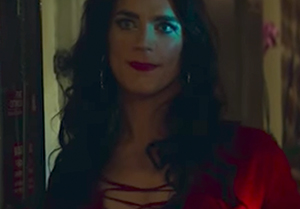
Matt Bomer
If “Alaska Is a Drag” keeps thinking outside the box, the Edie Windsor documentary “To a More Perfect Union” plays everything by the book, much to its detriment. Director Donna Zaccaro glosses over the decades-long love affair between Windsor, a technology manager at IBM who became an LGBT activist, and psychologist Thea Spyer. The filmmaker zeroes in on what would become the landmark Supreme Court case that helped make marriage equality the law of the land in the U.S. It's hard not to get swept up in the challenges Windsor and attorney Roberta Kaplan faced during their long legal fight, but what gets lost in the shuffle is Windsor's special bond with Spyer. What were their childhoods like? What made their union so special? By staying relentlessly on message, Zaccaro deprives her film of the distinctive qualities that would have made it worthy of its subject. But the finished product feels like a study aid for a social studies class, when it should have been so much more.
Marriage appears to be one of the recurring themes at this year's OUTshine. (This year's centerpiece selection is actually a Kosovan film called “The Marriage.”) The subject is at the heart of the U.S. dramedy “Funny Story,” taking its (straight male) protagonist by surprise, in more ways than one. Walter (Matthew Glave), an aging TV actor whose biggest claim to fame is a cheesy sci-fi show with shades of the Kevin Sorbo “Hercules” series, is stuck in a loveless marriage to a much younger woman, and when his (not out to him) daughter Nic (Jana Winternitz) invites him to join her friends in Big Sur, California, he jumps at the opportunity, and even agrees to pick up her friend Kim (Emily Bett Rickards) to they can both ride together. It's safe to say father and daughter are somewhat estranged. Kim's disdain of her famous travel mate, underscored whe she tells him Nic harbors resentment over not being there for her. Things get complicated in all kinds of contrived ways, but director Michael J. Gallagher does bring the funny, especially in the performances he elicits from peanut-gallery supporting characters playing Nic's circle of friends. He almost makes you forget this is a dude making a movie about lesbian characters that may have been better served if it had been made by women. It's clear Gallagher, who has a background in sketch comedy and digital series, makes no excuses for Walter's self-absorbed and inconsiderate conduct, but he makes his characters jump through hoops to arrive at a payoff that feels unearned.
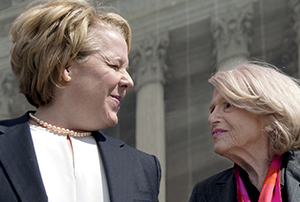
Roberta Kaplan, Edie Windsor
A much more satisfying payoff is in store for those who go see the self-referential French comedy “My Life with James Dean,” a bone-dry shout-out to the travails of independent queer filmmakers fighting uphill battles to ensure their work is seen. The director in question is Géraud (Johnny Rasse), who travels to Normandy to present his artsy, brooding, highly homoerotic film called, you guessed it, “My Life with James Dean” to a theater inside a casino where viewers prefer lowbrow French comedies and American action movies. On top of suffering through a number of emasculating indignities, Géraud has to deal with Gladys (Juliette Damiens), a nosy hotel manager with more ambitious career aspirations, and Sylvia (Nathalie Richard), a flaky theater programmer with quite the romantic dilemma. But it's young, awestruck Balthazar (Mickaël Pelissier), a theater employee who is taken by Géraud and his celulloid vision, who might be the bright spot the hapless visitor needs in his life. Imagine “Local Hero” with the deadpan humor of Finnish auteur Aki Kaurismäki and you just might have an inkling of director Dominique Choisy's singular worldview. He's made a sweet-and-sour trifle that's worth discovering.
But if you can only go to one film during OUTshine's first half, I say “My Best Friend” is the one to beat. The coming-of-age drama from Argentina, set in a small city in Patagonia, traces the fraught friendship between quiet teen Lazaro (Angelo Mutti Spinetta) and Caíto (singer Lautaro Rodríguez) the childhood friend who comes to stay with his family after the latter's dad falls on hard times. Writer-director Martín Deus, here making his feature directing debut, doesn't set out to make just another coming out story. Even though one of the pleasures of his finely observed screenplay is the way Lazaro's budding sexual longings eventually bubble to the surface, the filmmaker aims to etch a fully rounded portrait of adolescent growing pains, one where liking boys is merely one of many issues to deal with, and often not even the most pressing. After Caíto proves to be a challenging, unpredictable house guest, Lazaro takes it upon himself to straighten him out, so to speak, so the teen's skeptical parents don't send Caíto packing. The friendship that blossoms between the boys bears the bruises and the joys of real life, resulting in a film where the whole amounts to more than the sum of its parts. Call it “Love, Simon's” grittier, less sentimental South American cousin.
For ticket and showtime information, go to www.mifofilm.com. See you at the movies.
 MAIN MENU
MAIN MENU

